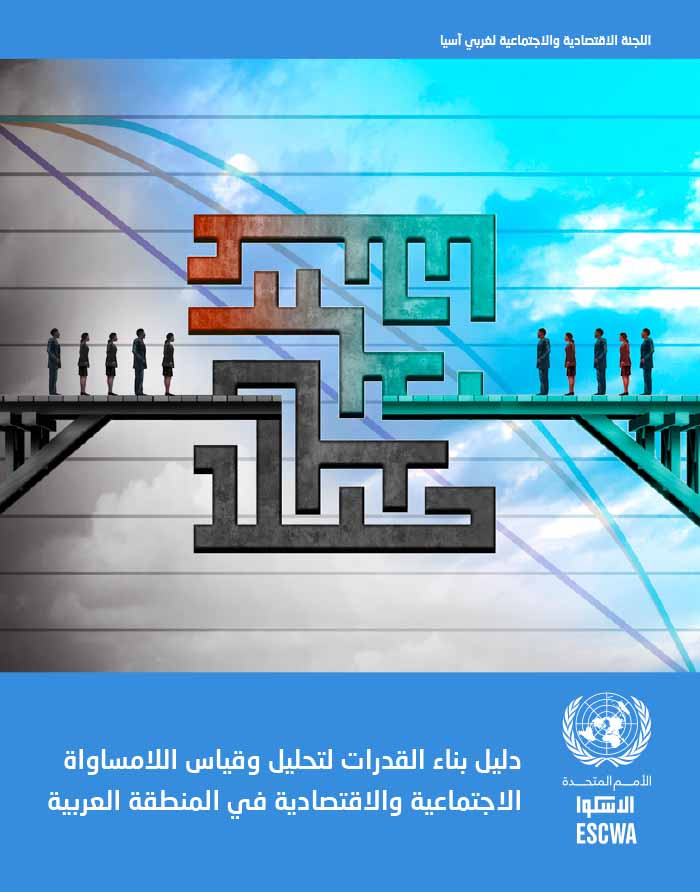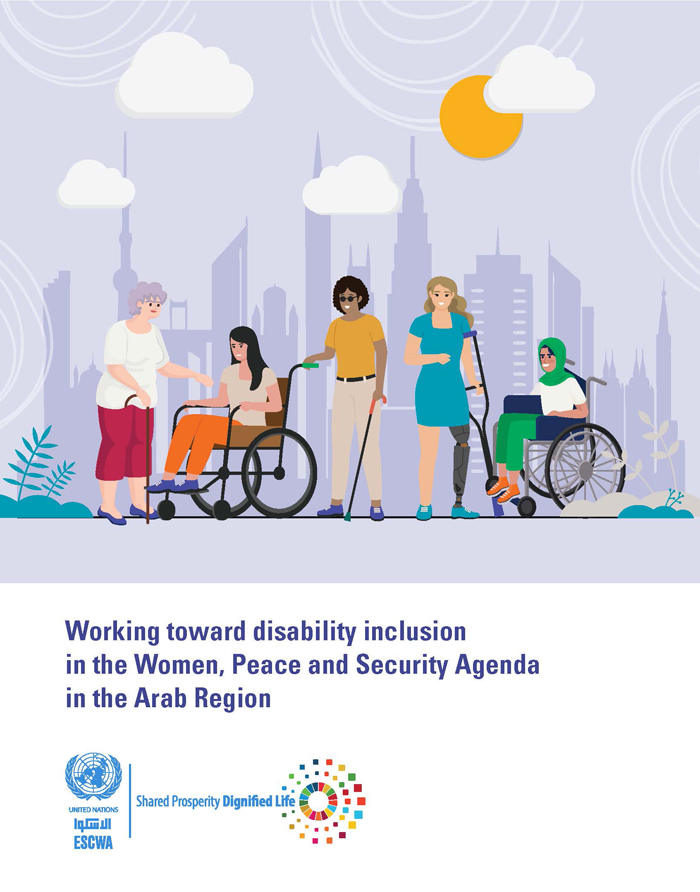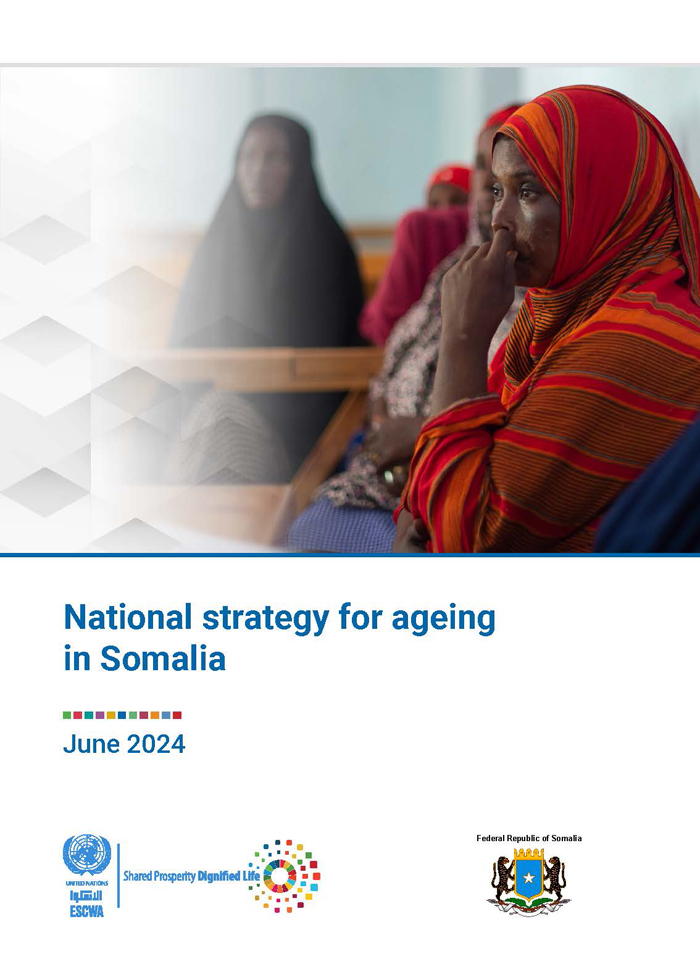
ESCWA Publication: E/ESCWA/SDD/2017/TECHNICAL PAPER.21
Country: Arab region
Publication Type: Training material
Cluster: Gender Justice, Population and Inclusive Development
Focus Area: Inclusive development
Initiatives: Monitoring money-metric poverty
SDGs: Agenda 2030
Keywords: Capacity building, Equity, Social justice, Social protection, Sustainable development
Capacity-building toolkit on the analysis and measurement of a socio-economic inequalities in the Arab region
December 2020
The capacity building toolkit on the analysis and measurement of socio-economic inequalities in the Arab region was produced as part of ESCWA’s efforts to build capacities to analyze and measure socio-economic inequalities in the Arab countries based on the principles on which social justice is founded, which include rights, equality, equity and participation, which are considered the basic pillars of national development plans and policies.
The toolkit seeks to:
- Introduce government officials from the relevant ministries responsible for formulating national visions, strategies, plans, policies and programmes to the concept, principles, dimensions and causes of inequality, as well as to the tools needed to measure it, and thus, to enhance their capabilities to address this issue;
- Promote a common and comprehensive understanding of the concept of equality / inequality, and thus enhance countries' capacities to analyze and measure socio-economic inequalities in the Arab region in the context of achieving the 2030 Agenda for Sustainable Development, and develop a vision for implementing multidisciplinary public policies that support the principle of equality;
- Provide knowledge and enhance technical skills for using the tools and mechanisms to measure social and economic inequality and integrate them into development planning and policy formulation;
- Establish consensus between the concerned government officials and other actors/stakeholders in the social field involved in formulating and implementing national development plans, policies and programmes.
In this context, ESCWA seeks to implement national or sub regional training programmes to build the capacity of stakeholders involved in the development of social development policies and programmes, and to provide advisory services on how to use this toolkit.
Related content
Inclusive development
,
The capacity building toolkit on the analysis and measurement of socio-economic inequalities in the Arab region was produced as part of ESCWA’s efforts to build capacities to analyze and measure socio-economic inequalities in the Arab countries based on the principles on which social justice is founded, which include rights, equality, equity and participation, which are considered the basic pillars of national development plans and policies.
The toolkit seeks to:
- Introduce government officials from the relevant ministries responsible for formulating national visions, strategies, plans, policies and programmes to the concept, principles, dimensions and causes of inequality, as well as to the tools needed to measure it, and thus, to enhance their capabilities to address this issue;
- Promote a common and comprehensive understanding of the concept of equality / inequality, and thus enhance countries' capacities to analyze and measure socio-economic inequalities in the Arab region in the context of achieving the 2030 Agenda for Sustainable Development, and develop a vision for implementing multidisciplinary public policies that support the principle of equality;
- Provide knowledge and enhance technical skills for using the tools and mechanisms to measure social and economic inequality and integrate them into development planning and policy formulation;
- Establish consensus between the concerned government officials and other actors/stakeholders in the social field involved in formulating and implementing national development plans, policies and programmes.
In this context, ESCWA seeks to implement national or sub regional training programmes to build the capacity of stakeholders involved in the development of social development policies and programmes, and to provide advisory services on how to use this toolkit.



